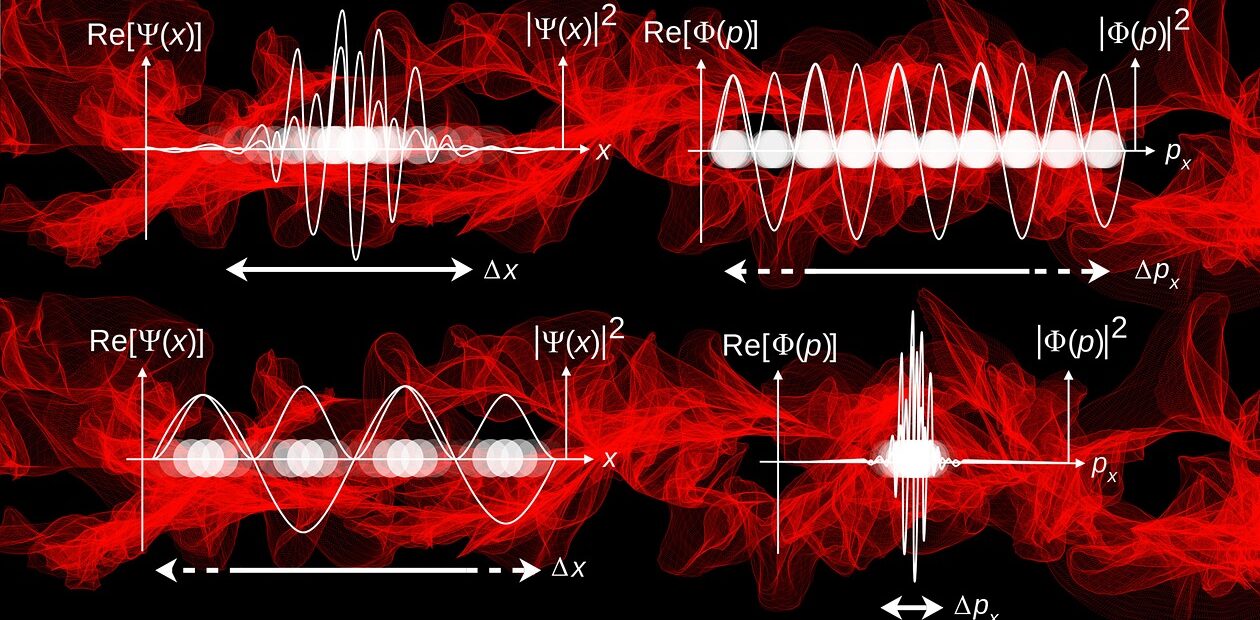Quantum Computing
Exploring the Fascinating World of Quantum Computing
Introduction
In the realm of computer science, a new frontier is emerging that promises to revolutionize the way we process information and solve complex problems. Quantum computing, built upon the principles of quantum mechanics, is poised to take computation to unprecedented levels of speed and efficiency. Unlike classical computers that rely on binary digits or bits (0s and 1s), quantum computers utilize quantum bits or qubits, which can exist in multiple states simultaneously. Quantum computing has the potential to unlock unparalleled computational power and lead us into a new era of scientific breakthroughs. While classical computers have propelled us through incredible advancements, they are bound by physical limits that hinder their ability to solve complex problems efficiently. Offering the potential to solve practically impossible problems for classical computers, Quantum Computing has captivated the imagination of scientists, researchers, and technology enthusiasts alike.
Quantum Computing is a groundbreaking field that has the potential to revolutionize the way we process information and solve complex problems. Unlike classical computers that use bits to represent information as either 0s or 1s, quantum computers leverage the principles of quantum mechanics to manipulate quantum bits, or qubits, which can exist in a superposition of both states simultaneously. This unique property allows quantum computers to perform calculations at an unprecedented speed and efficiency, opening up new avenues for scientific research, cryptography, optimization, and more.
In this blog post, we will embark on a journey into the fascinating world of quantum computing, exploring its underlying principles, applications, and the exciting possibilities it holds for the future.
Understanding Quantum Computing
At its core, quantum computing harnesses the principles of quantum mechanics to perform computations. Quantum Mechanics is a branch of physics that describes the behaviour of matter and energy at the smallest scales. Unlike classical physics, which operates on a macroscopic level, quantum mechanics deals with the subatomic realm, where particles exhibit strange and counterintuitive behaviours.
Classical computers, which rely on bits to store and process information, use binary digits (0s and 1s) as the building blocks of computation. In contrast, qubits in quantum computing can exist in multiple states simultaneously, thanks to a phenomenon called superposition. This ability to exist in multiple states simultaneously enables quantum computers to perform computations in parallel, exponentially increasing their processing power compared to classical computers. Additionally, qubits can be entangled, meaning the state of one qubit becomes intrinsically linked to the state of another, regardless of the physical distance between them. This property allows for the creation of quantum circuits that exhibit a profound level of interconnectedness, leading to potentially groundbreaking computational advantages. This property enables quantum computers to perform complex calculations more efficiently than their classical counterparts.
Key Concepts in Quantum Computing
1. Superposition: Superposition is a fundamental concept in quantum computing. Qubits can exist in a combination of multiple states simultaneously, allowing for parallel processing and the exploration of numerous possibilities simultaneously. Unlike classical bits that can only represent one value at a time, qubits can exist in a superposition of states. This means that a qubit can represent both 0 and 1 simultaneously, allowing for parallel processing of information. Superposition is one of the most intriguing aspects of quantum mechanics is superposition. In the quantum realm, particles can exist in multiple states simultaneously.
2. Quantum Entanglement: Entanglement is a phenomenon where multiple qubits become correlated in such a way that the state of one qubit is instantly related to the state of another, regardless of the physical distance between them. Changes in one qubit will instantly affect its entangled counterpart, regardless of the distance between them. This property enables the transmission of information faster than light, known as quantum teleportation. Manipulating one qubit instantly affects the state of its entangled counterparts, enabling highly interconnected systems. This property enables quantum computers to perform operations on multiple qubits simultaneously and facilitates more efficient computation. This phenomenon is often referred to as “spooky action at a distance” and is a crucial resource in quantum computing.
3. Quantum Gates: Similar to classical logic gates, quantum gates are the building blocks of quantum circuits. They manipulate the state of qubits, enabling operations such as superposition, entanglement, and measurement.
4. Quantum Interference: Interference occurs when quantum states combine constructively or destructively, leading to computational advantages by leveraging the probabilities associated with quantum phenomena.
5. Quantum Tunnelling: Quantum tunnelling allows particles to pass through energy barriers that they would not typically overcome according to classical physics. This property enables quantum computers to explore multiple paths and find the optimal solution efficiently.
Potential Applications of Quantum Computing
1. Cryptography: Quantum computers have the potential to crack currently unbreakable encryption algorithms, jeopardizing secure communication systems. On the flip side, they can also enable the development of quantum-resistant cryptography, ensuring the security of sensitive information in the age of quantum computing. While it can break traditional encryption methods, it can also offer new encryption techniques that are resistant to quantum attacks, such as quantum key distribution and post-quantum cryptography. Quantum cryptography offers unbreakable security through the use of Quantum Key Distribution (QKD) protocols. Quantum computers could render current encryption algorithms obsolete. Quantum-resistant encryption methods are being explored to ensure the security of sensitive information in the future.
2. Optimization and Simulation: Quantum computing can optimize complex problems in various domains, such as financial modelling, supply chain management, and transportation logistics. Its ability to perform massively parallel computations can lead to more efficient and cost-effective solutions. They can also simulate complex systems, enabling scientists to understand molecular interactions, climate modelling, and drug discovery with unprecedented accuracy. Quantum computers excel at optimization problems, such as finding the most efficient routes for delivery services or optimizing complex supply chains.
Quantum computing can be employed to model and predict complex financial scenarios, improving risk assessment, portfolio optimization, and fraud detection. It has the potential to revolutionize the financial industry by providing more accurate and efficient calculations. They could also revolutionize the field of simulation, enabling more accurate modelling of complex systems, such as chemical reactions, behaviour of quantum systems themselves or weather patterns.
3. Machine Learning and AI: Quantum computing can enhance machine learning algorithms, enabling faster and more accurate pattern recognition, data analysis, and optimization of neural networks. Quantum machine learning has the potential to transform industries such as finance, healthcare, and autonomous systems. Quantum computing can enhance machine learning algorithms by optimizing data analysis, pattern recognition, and classification. It has the potential to uncover hidden patterns in large datasets, leading to advancements in areas such as natural language processing and image recognition.
Quantum algorithms, such as quantum support vector machines and quantum neural networks, have the potential to improve pattern recognition, optimization, and data analysis tasks. Quantum machine learning algorithms can improve the capabilities of artificial intelligence systems, enabling more accurate predictions and faster data processing.
4. Material Science: By simulating the behaviour of atoms and molecules, quantum computers can revolutionize material science. They can help discover new materials with desired properties, accelerate the development of efficient batteries, and contribute to advances in renewable energy and nanotechnology.
5. Drug Discovery: Quantum computing can accelerate the process of drug discovery by simulating molecular interactions and analysing vast datasets. This capability holds immense promise for accelerating the drug discovery process, designing new materials with specific properties, and improving the understanding of chemical reactions. The ability to simulate and analyse molecular interactions with high precision could revolutionize the drug discovery process, leading to the development of new medicines and treatments. It could also accelerate advances in material science, leading to the development of new materials with unique properties.
Challenges and Limitations
1. Quantum Decoherence: Qubits are highly sensitive to environmental disturbances, leading to a phenomenon called quantum decoherence and the loss of quantum information. Building and maintaining stable qubits that are not susceptible to errors and decoherence is a significant challenge. Quantum systems are extremely sensitive to external disturbances, such as temperature and electromagnetic fields, making it difficult to preserve the fragile quantum states necessary for accurate computations.
2. High Resource Requirements and Scalability: While quantum computers have demonstrated impressive computational power on a small scale, scaling up these systems remains a considerable obstacle. Increasing the number of qubits while maintaining their coherence is crucial for solving complex real-world problems. Overcoming this hurdle requires advances in fabrication techniques, error correction codes, and quantum error correction protocols. Current quantum computers have limited qubit counts, restricting the complexity of problems they can solve. Achieving fault-tolerant, scalable quantum systems with a large number of qubits is a significant focus of research. Researchers are exploring different physical systems, such as superconducting circuits, trapped ions, and topological qubits, to improve scalability.
3. Error Correction: Quantum systems are highly susceptible to errors due to environmental noise and decoherence, leading to errors and loss of information. Developing robust error correction techniques is crucial to ensure the reliability of quantum computations. Researchers are actively working on developing qubits with longer coherence times and reducing the error rates associated with quantum operations. Maintaining the stability of qubits and preventing errors is crucial for the successful implementation of quantum computers.
4. Cost and Affordability: Quantum computing is currently an expensive endeavour in terms of hardware and infrastructure. The complexity and precision required to build and maintain quantum computers make them financially inaccessible to many organizations. However, as technology advances and economies of scale come into play, the costs will decrease over time. Quantum computers currently require extremely low temperatures and intricate control mechanisms, making them bulky and expensive. Quantum computing is currently accessible to only a few specialized researchers and organizations due to its high cost and technical complexity. Developing practical and cost-effective quantum hardware is vital for the technology’s widespread adoption.
5. Quantum Software and Algorithms: Developing quantum algorithms and software tools for programming quantum computers remains an active area of research. This includes designing efficient quantum algorithms for specific tasks and creating high-level programming languages for quantum computing. Simplifying quantum programming languages and tools is crucial for enabling researchers and developers to harness the power of quantum computing without requiring an extensive background in quantum mechanics.
The Future of Quantum Computing
Despite these challenges, there has been significant progress in the field. Quantum supremacy, achieved when a quantum computer outperforms classical computers in a specific task, has been demonstrated by various research teams. Moreover, both academia and industry players are actively investing in quantum research, contributing to advancements in hardware, software, and algorithmic development. Tech giants, research institutions, and Startups are investing heavily in quantum computing, driving innovation and accelerating advancements. As the field advances, breakthroughs in hardware, algorithms, and error correction techniques are anticipated, bringing us closer to practical and scalable quantum computers.
Quantum computing is still in its early stages, but significant progress has been made in recent years. Governments, research institutions, and technology companies are investing heavily in quantum research and development. As technology advances, we can expect to witness breakthroughs in fields like materials science, climate modelling, financial optimization, and more. Quantum computers are poised to tackle problems that were previously unsolvable, potentially revolutionizing entire industries and reshaping our understanding of the world.
Conclusion
Quantum computing represents a paradigm shift in computing capabilities, offering the potential to solve complex problems that are currently intractable for classical computers. Its ability to harness the principles of quantum mechanics opens up a realm of possibilities that were once considered science fiction. While significant challenges remain, the progress made in the field is remarkable. As researchers and scientists continue to push the boundaries of quantum computing, we can look forward to a future where quantum algorithms and machines reshape industries, accelerate scientific discoveries, and unlock new frontiers in computation. While quantum computing is still in its early stages, the progress made thus far has ignited excitement and anticipation for what lies ahead. The journey to harness the full power of the subatomic world has only just begun, and the possibilities are truly awe-inspiring.
In conclusion, as we step into the quantum era, it is an exciting time for computing. Quantum computing holds the key to unlocking the mysteries of the universe, empowering us to tackle the most complex challenges of our time. With each stride forward, we inch closer to harnessing the true power and potential of quantum computing, and the possibilities are boundless. As we continue to explore the mysteries of quantum computing, it is certain that this transformative technology will shape the future of science, industry, and society at large.


